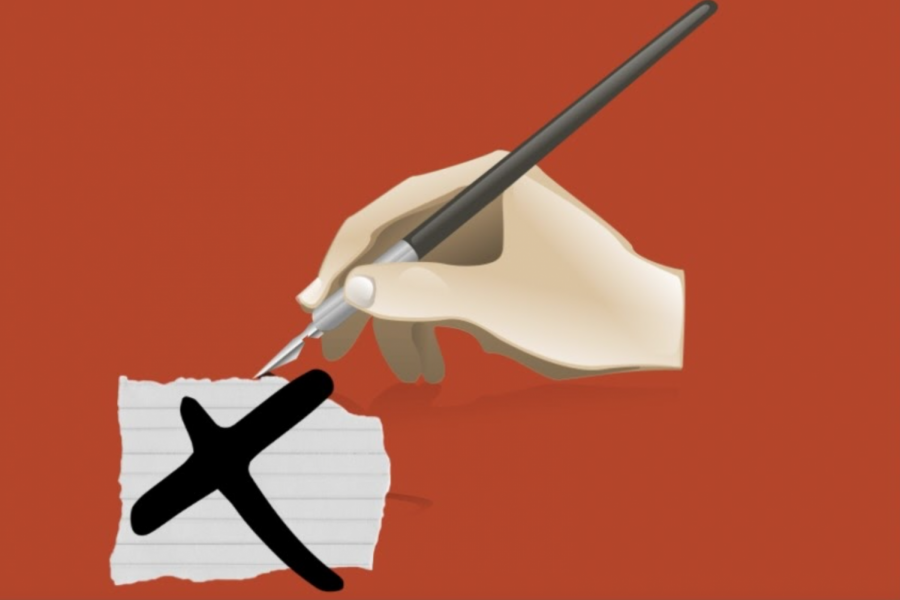The pen is mightier than the sword: How journalism is at an all time threat
Credit: Emily Roberge
WSPN’s Emily Roberge discusses the aftermath of US journalist Danny Fenster’s imprisonment in Myanmar and what it means for the safety of journalists.
December 3, 2021
We’ve all heard politicians call journalism “fake news” at some point or another. In recent years, writing the truth has become more important than ever before, as our nation cannot seem to agree on fact and fiction. Most recently, political regimes have increasingly attempted to suppress the truth from coming to light, dangerously cracking down on journalists’ work and their first amendment rights. It’s almost as if a notebook serves more harm than a semi-automatic rifle.
In recent news, American journalist Danny Fenster, the managing editor of Frontier Myanmar Magazine, was imprisoned for six months in a Myanmar prison over disseminating information that could be harmful to the military, unlawful association with opponents of the regime and violating immigration law. This conviction gave Fenster the maximum sentence: 11 years behind bars, with a possibility of 40 years on nebulous charges. Even though Fester recieved humane treatment and was recently released, he shouldn’t have been there in the first place. He was just doing his job.
It’s not surprising that journalism has grown increasingly dangerous over the last few years, as authoritarianism spreads rampant in political regimes. Countries like Russia, China and Myanmar are increasing their measures to censor the press, doing everything they can to control the circulation of information. In China, the pandemic has only pushed the Chinese government to greater extremes as their grip over the media gets tighter and tighter. Doing everything they can to censor their COVID-19 coverage, seven journalists remain imprisoned for their coverage of the pandemic.
Alongside China, Russia’s long lasting “president,” Vladimir Putin, has created laws to silence journalists and media organizations as well as prevent any nongovernmental “foreign agents” from “plaguing” Russia. One of these laws is the 2012 “Russia’s ‘Foreign Agent’ Law,” which has been weaponized to remove any independent media organization from obtaining foreign funding, as well as any information that might serve as opposition to Putin. Greater protection of journalists and the art of journalism is the only chance at making a dent in Putin’s seemingly indestructible throne.
As manipulative as they may be, these governments don’t really care about their people; it all comes down to maintaining their power, no matter how many people they must trample to do so. That’s where the role of journalists comes into play. They are supposed to report the facts and say the truth for the benefit of the people; however, should they have to risk their safety, imprisonment or even their life for this? It’s an absolutely terrifying thought.
To my astonishment, Fenster’s imprisonment wasn’t just an unusual instance; rather he was another journalist in a greater trend threatening journalism. Recent data from the Committee to Protect Journalists shows that in 2021, 20 journalists have been killed, and 66 journalists are missing, meaning there is need for greater protection. We can’t sit back and let more journalists disappear; news organizations need to band together and take initiative in thinking about the safety of their journalists, or they must rethink their work altogether.
Like Fenster, a CJP report depicts that 274 journalists are currently imprisoned. 47 of them are from China and 10 are from Russia. There is Erkin Tursin serving an 11 year sentence, Alexandr Valvov serving a six year sentence and Gulmire Iman serving a life sentence, among many other journalists, locked away for doing their jobs. Something has to be done.
We are also responsible for this issue. Our country has also ignited the fire of attacks against the press, pouring gasoline into the flames. It’s become normal for Americans to categorize events and publications as “fake news” when they don’t agree with it. It’s the manipulative mindset of “if it doesn’t agree with my views, then it’s not true.” Although we have the right to freedom of speech, which many don’t, there is a great division between far left and the far right. Journalism has become the enemy in this. It’s more important than ever for journalists to maintain their footing in the growing criticism and attempts to discredit their work.
The idea of traveling the world, reporting and writing about events and sharing the truth has always sounded appealing to me. Whether it’s my tenth grade “Good Life” essay where I envisioned myself as a war journalist covering conflicts in Afghanistan or my growing interest in pursuing a career in journalism, all of this is frightening. I don’t want to be another alarming statistic in the ever increasing threat to journalism.
As a student journalist, it’s important that we don’t dissuade aspiring journalists from pursuing their passions. The world needs more journalists. We can’t let words like “fake news” or “propaganda” prevent us from covering the truth. The pen and paper will always be mightier than the swords of the power-hungry political regimes who attempt to suppress it. Let’s keep it that way.





![Last Wednesday, the Wayland School Committee gathered to discuss a number of topics regarding the health curriculum and Innovation Career Pathway course. Another large topic of conversation was the ways to potentially mitigate distracting cell phone usage. "These [phones] are going to distract your learning and social relationships," Superintendent David Fleishman said. "That's concrete right there."](https://waylandstudentpress.com/wp-content/uploads/2025/06/Screenshot-2025-06-04-at-9.49.31 PM-1200x886.png)



























![Troy Hoyt finishes the Boston Marathon, running for the Hoyt Foundation. T. Hoyt is the son of Hoyt Foundation CEO Russ Hoyt.
“[Running a marathon] might seem like a big thing, when it’s presented to you at first, but if you break it up and just keep telling yourself, “Yes, you can,” you can start chipping away at it. And before you know it, you’ll be running the whole 26 miles, and you won’t even think twice about it.” T. Hoyt said.](https://waylandstudentpress.com/wp-content/uploads/2025/04/C36E8761-1CBB-452E-9DF2-543EF7B1095E_1_105_c.jpeg)













































